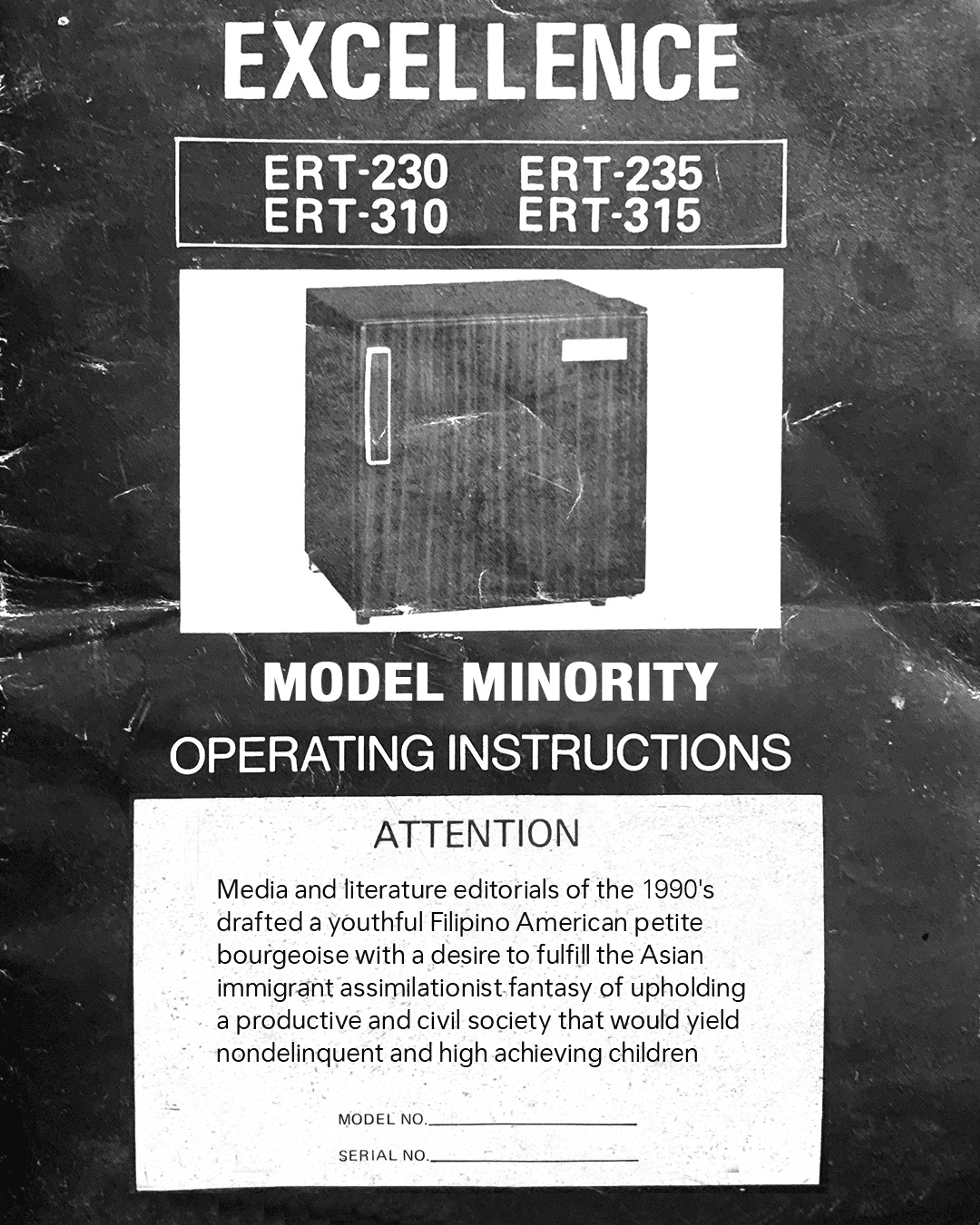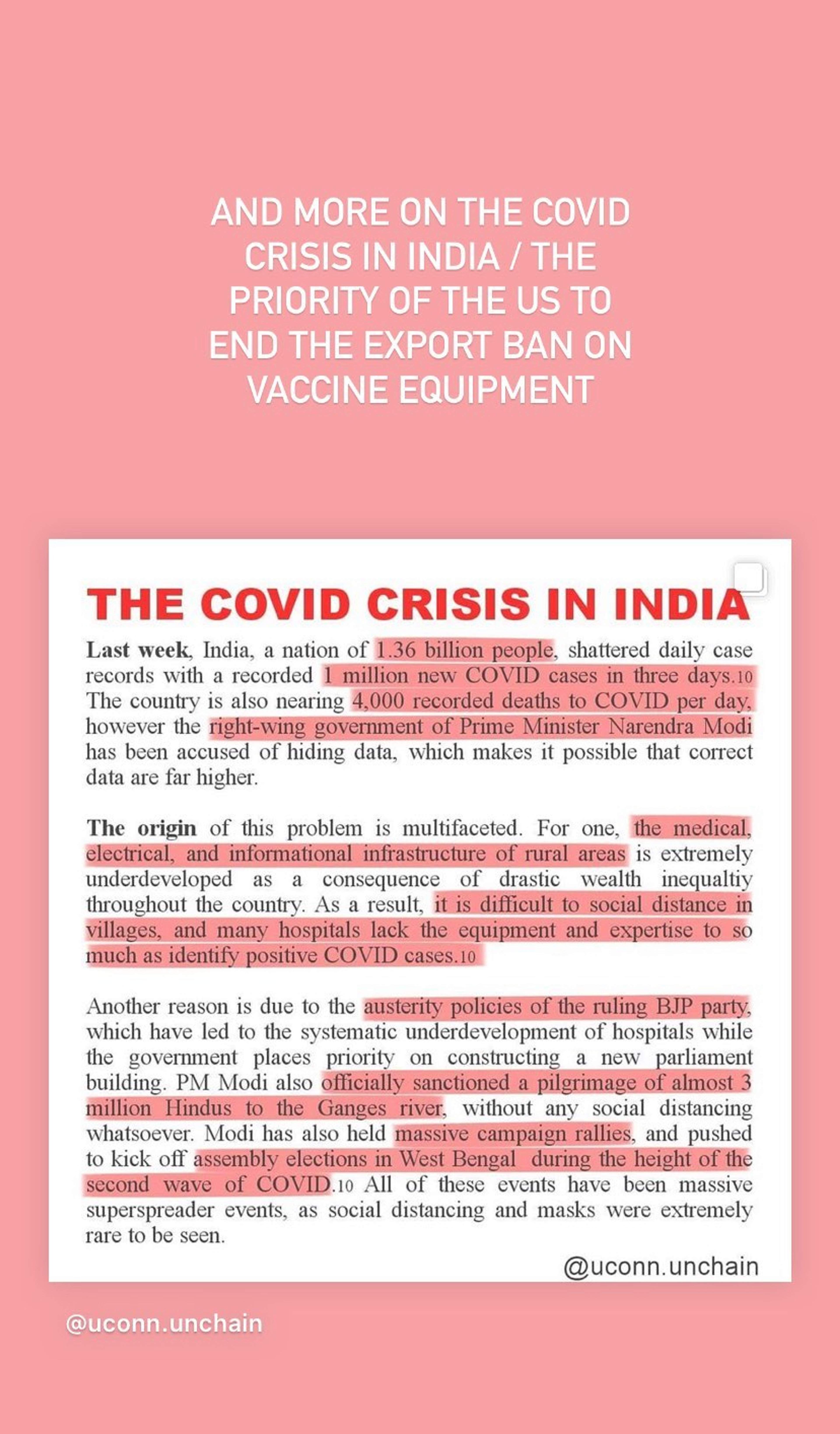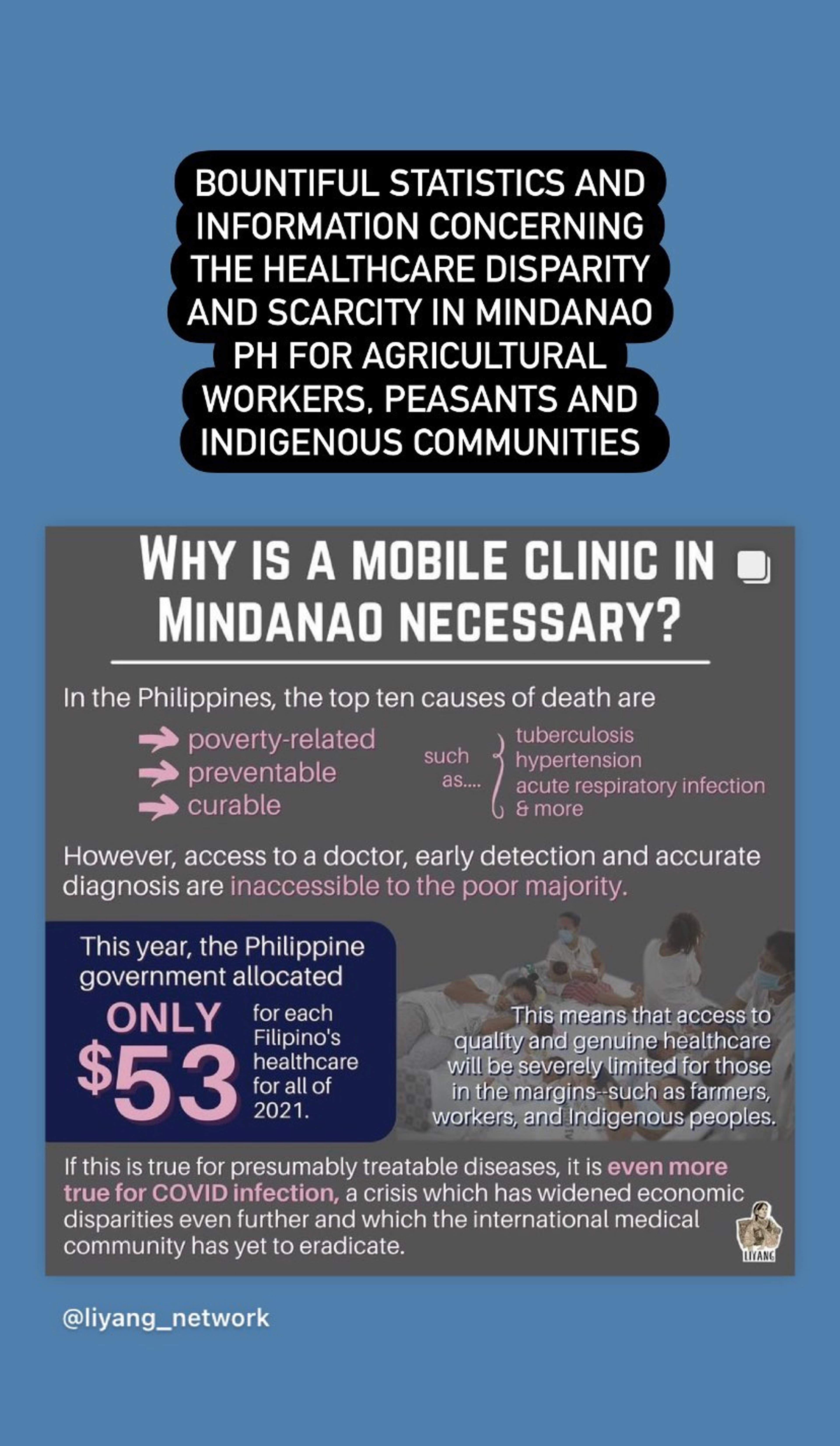More writings available via FilAmJam !
ERT-230
ATTENTION:
Media and literature editorials of the1990's drafted a youthful Filipino American petite bourgeoise with a desire to fulfill the Asian immigrant assimilationist fantasy of upholding a productive and civil society that would yield nondelinquent and high achieving children.
This desire and common sense stems from a 1960's post segregation racialization effort to institutionalize a community identity for Asian Americans as model minorities when compared to their Black and Brown counterparts throughout history.
Further advancements of assimilation within the multiculturalist narrative support the ascension of a "classy" and "self-disciplined" genealogy of Filipino-American representatives thus offering political surrender or at least moral approval of the racist social formations of a U.S. Nationalist agenda.
With a deeper look at these ideological national projects alongside our contemporary culture, there must be a wider call for critical speculation of our platforms, media, businesses, celebrities and influencers and the ways we may be perpetuating allegiance to these western hegemonic values through a self generating elitism in the awards, recognitions and celebrations that we populate our media with.
We must especially think critically for the ways in which this history and common sense may impact the way we've come to witness criminalization, social deviance, mental health and the policing of our Filipino American bodies, subjects and artifacts. We must expound upon any allegiance to the institutional, moral and political forms of the U.S. State.
Moreover, any policies and practices upon our identities born within the tenets of white supremacy and genocide must be rectified.
Open Letter to #Stopasianhate
In all efforts to #stopasianhate I'd like to reinforce that this address of anti-asian sentiment is more
than just the simplified emotion of hatred and an increase of individualized hate crimes, but rather a
deeply systemic American culture of violence, fetishization, misogyny and discrimination against
migrants and people of color in a very nuanced arena of various institutions throughout all
imperialist and national histories.
Beyond the importance and necessity of solidarity and continued support for all oppressed and
marginalized peoples in their health, protection, visibility and care, is the critical observance of the
neoliberal and militaristic policies of governments that perpetuate these violent systems on a global
scale.
The liberation of these people is not simply in the conscious consumption of asian owned
businesses, clever boosted hashtags or the attenuation of your language in cautious prevention to
perpetuating harmful tropes, ideas and symbols, but the outset of analyzing the depth of these
systems through race, class, gender, age and ability and the complex military, economic and political
histories they were forged in.
With these considerations, I deeply encourage and commend your continued support for the
unhoused, the incarcerated, the indigenous, the migrants and the wrongfully slain or extrajudicially
killed; the protection and love for the elderly, women and queer/trans communities; and the
continued learning and understanding of the movements against imperialism, capitalism and
neoliberalism.
Much care~
Jamin
Kundiman at the End of the World
In commemoration of the life and memory of Papa Plady Alcoba and in dedication to Louella Alcoba, David Reyes Sr., and Erlinda Reyes.
Much love to my family and the grace of their support and existence.
This work features 20th century classical Filipino guitar works in 4 channel stereo recorded through my grandfathers Akai 280D-SS reel to reel tape machine - a high fidelity home consumer model 4 track reel to reel tape machine with quadraphonic stereo technology that soon found it's decline by the 1970's.
My family owned the machine while on base in the Philippines mid-marcosian terror in 1975 and still stands today in contemporary refurbishment amidst what terror lies within the Philippines under the Duterte regime.
Here the kundiman continues as an artifact of respite in material comfort and communal expression against the long standing wage of authoritarian and colonial control.
As a musical genre of such sultry serenade - the tune, Kundiman de 1950 for example under the guise of a song of courtship, was also praised to stoke the patriotic flames of rebellion against Spanish colonizers and to inspire the fight for freedom through the 1896 Philippine Revolution. While it is commonly titled as Jocelyn ng Baliwag in dedication to a woman in the Bulacan town of Baliuag, the Kundiman is also officially known as Musica del Legitimo Kundiman Procedente del Campo Insurecto (or Music of the Legitimate Kundiman that Proceeds from the Insurgents).
It stands out to me, most amazingly, that such a sweet and romantic tune can be found in such violent times of revolution and that even amidst immense struggle the turn to art and expression can be an important outlet and artifact for humanity.
In end, here’s a bit of a Filipino Musicology lesson featuring the writing of Chrystle Mactal-Villaflor and Raymundo Banas y Castillo -
“While still adhering to Western musical idioms, composers found a way to define Filipino music as a hybridity of pre-colonial and post-colonial music. Antonio Molina, composer and a nationalist advocate University of the Philippines urged the need for a creation of music that they could define as Filipino: He says,“The new tempo of Philippine life demands that our music take a new direction… It must reflect actual happenings and national events; for music is, in a way, a historical and social document.” (Banas, 1970, p. 7). … Instead of ignoring the reality that Filipino musicians had already been fully westernized for in many centuries, the nationalist composers used Western musical idioms to amplify or create genres that would help define Filipino music. This deliberate choice was due to their desire for progress and modernism. n the sense of seeing patriotic compositions as a tool of defiance against colonialism, prominent Filipino composers like Francisco Santiago, Nicanor Abelardo, and Antonio Molina could easily be revered in the same way Filipino national heroes like Jose Rizal, Andres Bonifacio, or Emilio Aguinaldo are respected."
CREDITS
Performed by Jamin Marciano Maximo Alcoba Reyes
Arranged by Maestro Pedro Concepcion
Transcribed by Maestro Jose Valdez
Sleepwalk written by Jonnny, Santo and Ann Farina
Many thanks to Albert and Faithful Servant Publishers in the Philippines for all their work and efforts - "That in All Things God may be Glorified"
Akai 280D-SS from my grandfather
Canon A1 Film from my father
MRI 334 - On Personal Brands
In years ahead, music reporters and music lovers alike will look back to the 2010’s in honest question of what took the indie rock trend by storm and brought it to new heights. As they peruse the sudden insurgence of lo-fi and psychedelic garage rock upon the young teen music scene of Urban Outfitters and Spotify mixes, they will see Canadian rocker and jangle pop mastermind,
Mac DeMarco at the reins. Mac’s lackadaisical and slacker rock persona has taken a hold of rock music as the day drunken, care-free, flannel-lined festival headliner hero of today’s youth. Mac’s brand of cheap cigarettes and beer, blue collars and blue jeans rolled up has fit into a disenfranchised generation of teens and 20-somethings nostalgic for the ignorance and ease of the 90’s they never knew. If you put ol’ Mac on a store front or a festival lineup, you are sure to bring in the parents money of 12-28 year old “indie rock” fanatics.




